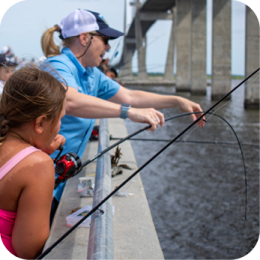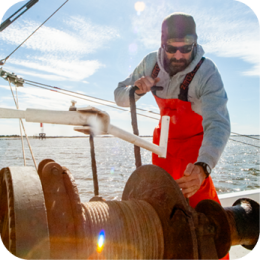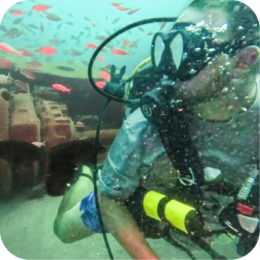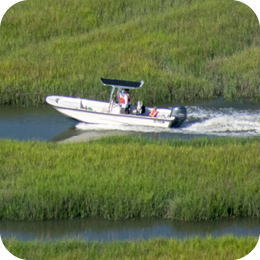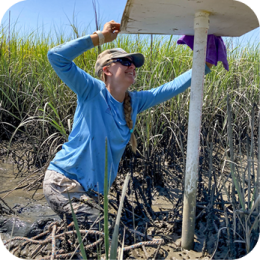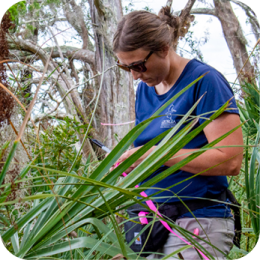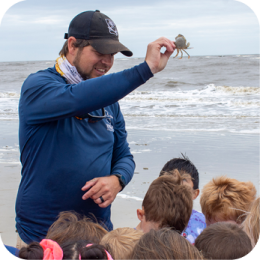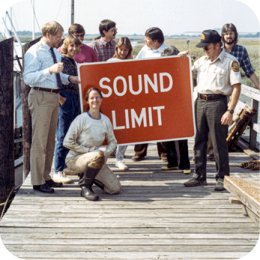
Georgia has received an additional $2.9 million of COVID fishery relief funds
The recent Consolidated Appropriations Act of 2021 (The Act) made additional funds available to Georgia commercial fishermen, wholesale dealers, processors of saltwater species, bait shrimp dealers and harvesters, aquaculturists, and for-hire guides with losses incurred during 2020 and/or 2021. Eligible applicants must have experienced a revenue loss of more than 35 percent compared to the same period for the five years between 2015 and 2019.
Additionally, Georgia has re-opened the application period for the Coronavirus Aid, Relief, and Economic Security Act, (CARES Act) and added live bait shrimp dealers and harvesters as eligible recipients. The same eligibility, loss, and application requirements apply to both the CARES Act and The Act.
Application packets were mailed to potentially eligible recipients September 28, 2021. If you have not received a packet and believe you may be eligible, you can download a copy here.
Georgia to receive $1.92 million in fishery relief
Georgia’s plan to distribute assistance funding provided by Sec. 12005 of the Coronavirus Aid, Relief, and Economic Security Act, (CARES Act) has been approved by NOAA Fisheries. Application packets have been sent via certified mail to individuals identified as potential assistance recipients.
To be eligible for assistance the following criteria must be met:
- Be a Georgia resident. Corporations doing business in Georgia must provide evidence of a physical Georgia location.
- Commercial fishing or seafood dealer – must hold a current commercial fishing, commercial vessel, or seafood dealer license. Commercial fishermen must have reported landings of saltwater species in at least one year between 2015 – 2019.
- For-hire guides – must hold a current saltwater guide license
- Wholesale dealers/processors – must possess the appropriate Georgia Department of Agriculture license for wholesale seafood in 2020 and deal with saltwater species.
Ineligible:
- Retail businesses and restaurants
- Revenue losses from freshwater products
Please continue to check back on this page for updates. (last update September 26, 2021).
The CRD press releases announcing application and eligibility requirements can be seen here and here.
Download the CARES Act spend plan developed by Coastal Resources Division by clicking here.
Download the Consolidated Appropriations Act of 2021 spend plan here
CRD Frequently Asked Questions
- Who can apply for COVID fisheries relief assistance?
Currently licensed resident commercial seafood harvesters, saltwater guides, live bait shrimp dealers and harvesters, and wholesale seafood dealers who have experienced revenue loss greater than 35% compared to the same months of the previous 5 years. Loss periods are March - May 2020. June - December 2020, January - June 2021. Only revenue losses from saltwater products will be considered. Retail seafood markets and restaurants are not eligible. Commercial fisherman must have reported landings to be considered eligible.
- What if I fish in Georgia but live in another state?
You must apply to the state in which you legally reside.
- How do I apply?
An application packet can be downloaded here. A completed application including a signed and notarized affidavit, worksheet, and proof of Georgia residency must be post-marked by November 6, 2021. Late applications will not be accepted.
- Why do I need to complete two affidavits for 2020?
Congress passed two COVID fisheries relief bills. The first bill, the CARES Act, funded Georgia fishery participants for losses incurred March - May 2020. The second bill extended the loss window into 2021. The two bills are separate 'pots' of money that can't be mixed. Therefore, each 'pot' has to be applied and accounted for individually.
- How much assistance will I receive?
Payment amounts will be based on the total amount of claims and available assistance. If claims exceed the total available, payments will be distributed proportionally amongst all of the eligible applicants. CRD will not know those amounts until all of the applications have been processed.
- If I received other COVID relief am I still eligible to receive relief from this program?
Yes, as long as all relief combined (PPP or SBA loans, unemployment, fisheries relief) does not make you more than whole for calendar year 2020. More than whole means that all the relief, combined with your traditional revenue, brings your business above 100% (equating to an increase in revenue as compared to an average year). Any SBA or PPP loans received that must be repaid do not count towards the ‘more than whole’ rule.
- How will I be paid if I qualify for assistance?
You will receive a check by mail from the Atlantic States Marine Fisheries Commission (ASMFC).
- When will I receive a check?
The timeline is dependent upon the number of applications received, how may must be returned for corrections. and the number of appeals. If you provide an email address on your application we will notify you when the checks are put in the mail.
- Is this taxable?
Yes. You will receive a W-9 at the end of the year.
- Who can I contact if I have other questions?
If you still have questions after reviewing the materials in the application packet, please contact either Julie Califf at julie.califf@dnr.ga.gov (912-262-3120) or Cindy Smith at cindy.smith@dnr.ga.gov (912-262-3350).
NOAA Fisheries Frequently Asked Questions
- Q. Who should affected fishermen and communities contact about accessing this funding?
A. Fishery participants eligible for funding—including Tribes, commercial fishing businesses, charter/for-hire fishing businesses, qualified aquaculture operations, processors, and other fishery-related businesses—should work with their state marine fisheries management agencies, territories, or Tribe to understand the process for applying for these funds.
- Q. Can eligible fishery participants receive direct payments?
A. Direct payments are expressly allowed under Sec. 12005 of the CARES Act. Each Commissions’ grant application must meet the requirements of the CARES Act and reflect the appropriate use of funds and considerations as outlined in the Request for Applications, the Request for Applications letter and the allocation table provided.
- Q. How long will it take for affected fishermen to get funding from the CARES Act?
A. It will vary, however we expect that Sec. 12005 funding will be disbursed more quickly than fishery disaster assistance funds because the CARES Act language does not require the Secretary of Commerce to declare a fishery disaster. The CARES Act also allows the funds to be awarded on a “rolling basis,” which will enable NOAA Fisheries to execute the funds more nimbly in partnership with the states, Tribes, and territories.
- Q. What types of fishing-related businesses are eligible for assistance?
A. For the purposes of carrying out the provisions in Section 12005 of the CARES Act, “fishery-related businesses” should be limited to commercial fishing businesses, charter/for-hire fishing businesses, qualified aquaculture operations, processors, and dealers. Businesses farther down the supply chain—including vessel repair businesses, restaurants, or seafood retailers—are not considered “fishery-related businesses” for the purposes of this funding. NOAA Fisheries generally does not expect bait and tackle operations and gear and vessel suppliers to be eligible for Section 12005 funding. However, individual states, Tribes, and territories will have the discretion to determine how they will identify eligible fishery participants, consistent with the requirements of the CARES Act, in their spend plans.
- Q. Which Tribes are eligible for assistance?
A. The definition of “fishery participant” identified in Sec. 12005 of the CARES Act, includes Tribal fishery participants. So, Tribes in coastal states with marine or anadromous fisheries and/or marine shellfish or finfish aquaculture operations are eligible for Sec. 12005 funds. Tribes in non-coastal states with freshwater fisheries will not be eligible for Sec. 12005 funds.
- Q. Which types of aquaculture operations are eligible for funding?
A. Privately owned aquaculture businesses growing products in state or federal marine waters of the United States and the hatcheries that supply them are eligible for Sec. 12005 funding. This includes all molluscan shellfish and marine algae. Non-salmonid marine finfish grown in marine waters not covered by USDA are also eligible for Sec. 12005 funding.
- Q. On what basis did the agency make the initial allocation decision?
A. Given the definition of “fishery participant” identified in Sec. 12005 of the CARES Act, the agency used readily available total annual revenue information from the commercial fishing, charter fishing, aquaculture, and processor/seafood sectors of coastal states, Tribes, and territories to proportionately allocate Sec. 12005 funding. NOAA Fisheries also took into consideration negative impacts to subsistence, cultural, and ceremonial fisheries during the allocation process. In addition, NOAA Fisheries established a minimum and maximum funding level ($1M and $50M, respectively).
- Q. Who will be responsible for determining if fishery losses exceed the 35 percent standard and applying for assistance?
A. Given the broad range of fisheries and entities affected across multiple jurisdictions, it will be important to provide states and territories flexibility in determining how they will identify which fishery participants meet the requirements described in Sec. 12005(b)(1)-(2). Thus, each state/Tribe/territory will be required to determine how they will verify which fishery participants meet the threshold of economic revenue losses greater than 35 percent as compared to the prior five year average or negative impacts to subsistence, cultural, or ceremonial fisheries. The spend plans will provide details on their proposed process for making these determinations.
